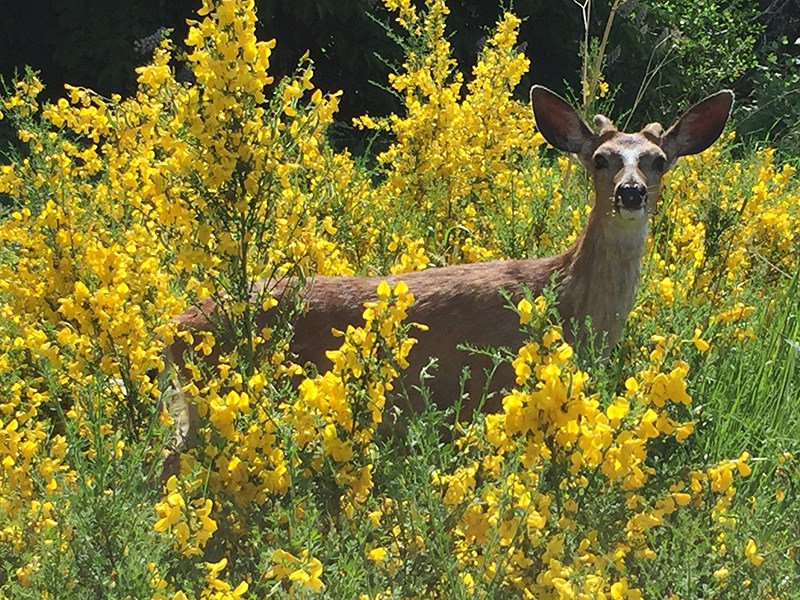Spring flowers are one of the joys of the season, but the vibrant yellow blooms of the scotch broom plant signal the ideal time to try and cut it down. The invasive species not only chokes out plants native to the region, it is considered a flash fuel, meaning it burns easily and spreads fire, according to City of Powell River fire chief Terry Peters.
“It’s incredibly flammable,” he said. “If it catches fire it throws embers.”
Peters works on a volunteer basis for an organization called BroomBusters. As the name suggests, its mission is to eradicate the plant from the region; and mitigating fire risk is a big part of that mission. Local support for the project has been excellent, added Peters.
“There’s a big effort of the community coming together,” said Peters. “A lot of volunteers, the City of Powell River and qathet Regional District are backing it up.”
Locally, BroomBusters welcomes any and all volunteers in the push to eliminate the plant.
“I call it my gateway weed,” said Peters. “It’s easily identified, kids can cut it too, and there’s just a small window of opportunity to get it when it’s in bloom.”
This window tends to be the month of May and early June, he added.
“It varies within the season, but it’s been a perfect year for it to start with the rain and heat that we’ve been having.”
Cutting the blooming plant weakens it as most of the plant’s energy will be focused on the flowers, and the key is to cut broom close to the root without uprooting it or disrupting the root system as this can spread the up to 18,000 seeds a large plant can produce. Peters points to Qualicum Beach as a broom busting success story.
“It took them 10 years, but they’re broom free,” he said.
Although there are other invasive plants of concern in the region, including Japanese knotweed and giant hogweed, these are not as simple to identify and definitely not safe to touch. Peters recommends the Report-A-Weed and Report Invasives BC smartphone app for any local sightings of these plants.
Another invasive plant, Rubus armeniacus, or blackberry, may be more difficult to eradicate due to its popularity. The Himalayan variety of the blackberry was brought to BC in the late 1800s and has aggressively taken over landscapes and displaced native species ever since. Peters admits it may be more difficult to sway public opinion against it.
“Even our beloved blackberry is a problem,” he added, noting that he knows his audience and will pick his battles accordingly. “The blackberry, that’s one I’m just not willing to take on,” he said.
For more information about broom, and listings of upcoming broom busting work parties, go to broombusters.org or contact Peters at [email protected].



